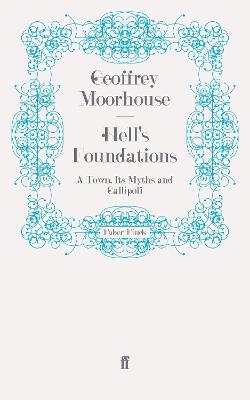Teach Yourself
2 total works
There is no shortage of books on the ill-fated Gallipoli campaign of 1915 but this one stands out. In it Geoffrey Moorhouse moves the focus from the more familar aspects to concentrate on one small mill town, Bury, in Lancashire, and to anatomize the long-lasting effect the Dardanelles had on it.
Bury was the regimental home of the Lancashire Fusiliers. In the Gallipoli landings of 25 April 1915 it lost a large proportion of its youth. By May 1915, some 7,000 Bury men had already gone to war, to be followed by many others before Armistice Day. More than 1,600,from just three local battalions of the Fusiliers were among those who never returned. The regiment left 1,816 dead men on Gallipoli alone: it lost 13,642 soldiers in the Great War as a whole.
This terrifying sacrifice left its mark. Bury commemorates Gallipoli on a scale similar to Anzac Day in Australia and New Zealand and yet as the Second World War approached, recruitment to the regiment fell far behind that in other Lancashire towns.
'Hurtles one from rage and cynicism to involvement and tenderness . . . Moorhouse offers one of the most fascinating revelations of the orthodox British spirit, religious, political and social . . . This book makes wonderful reading.' Ronald Blythe, Sunday Times
'A fascinating new approach to this tragedy . . . Moorhouse's contribution (to the bibliography of Gallipoli) is of quite outstanding value.' Robert Rhodes James, The Independent
'A subtle and moving exploration of the way that memories of slaughter and loss shaped the town's post-first world war identity.' Terry Eagleton, New Statesman
Bury was the regimental home of the Lancashire Fusiliers. In the Gallipoli landings of 25 April 1915 it lost a large proportion of its youth. By May 1915, some 7,000 Bury men had already gone to war, to be followed by many others before Armistice Day. More than 1,600,from just three local battalions of the Fusiliers were among those who never returned. The regiment left 1,816 dead men on Gallipoli alone: it lost 13,642 soldiers in the Great War as a whole.
This terrifying sacrifice left its mark. Bury commemorates Gallipoli on a scale similar to Anzac Day in Australia and New Zealand and yet as the Second World War approached, recruitment to the regiment fell far behind that in other Lancashire towns.
'Hurtles one from rage and cynicism to involvement and tenderness . . . Moorhouse offers one of the most fascinating revelations of the orthodox British spirit, religious, political and social . . . This book makes wonderful reading.' Ronald Blythe, Sunday Times
'A fascinating new approach to this tragedy . . . Moorhouse's contribution (to the bibliography of Gallipoli) is of quite outstanding value.' Robert Rhodes James, The Independent
'A subtle and moving exploration of the way that memories of slaughter and loss shaped the town's post-first world war identity.' Terry Eagleton, New Statesman
This travel book is the story of a three-month pilgrimage through Southern India, highlighting man's spiritual struggle to rise above wretchedness. The book is an account of Geoffrey Moorhouse's time spent in ashrams, his meetings with gurus, his testimony of a miracle performed by the reincarnated Satya Sai Bab and his visits to the dwindling Jewish community in Cochin. By the author of "The Other England", "Against All Reason", "Calcutta", "The Missionaries", "The Fearful Void", "The Best-Loved Game" (1979 Cricket Society Award), "India Britannica", "Lord's", "To the Frontier" (Winner, Thomas Cook Award for Best Travel Book), "The Imperial City: The Rise and Rise of New York" and "At the St George and other Essays on Rugby League".

